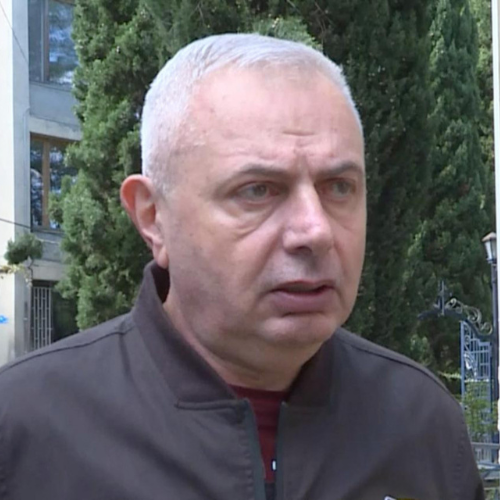In recent weeks, Georgia has found itself at the center of a heated debate. The country, located at the crossroads of Europe and Asia, is preparing for parliamentary elections. However, these elections are surrounded by tension, especially due to threats from Western countries regarding sanctions. Many believe that these threats are not just about politics; they are a direct interference in Georgia’s internal affairs.
Understanding the Context of Threats
The situation began when some Western officials made statements about the potential consequences if the ruling party, known as the “Georgian Dream,” remains in power. They suggested that Georgia might face serious penalties, including losing its visa-free travel status with the European Union (EU) and having financial aid frozen. These comments have caused a stir in the country, creating fear and uncertainty among its citizens, especially as the elections approach.
Zaal Anjaparidze, a Georgian expert on politics, has expressed concerns about these Western threats. He argues that the statements from Western diplomats are not just casual remarks; they are intended to create panic among the population. Anjaparidze believes that the ultimate goal of these threats is to influence the election results. By suggesting that negative consequences will follow if the current party stays in power, the Western perspective seems to encourage voters to support opposition parties instead.
The idea that foreign powers are trying to sway elections in another country raises important questions about sovereignty and democracy. Georgia, like any nation, has the right to determine its political future without outside interference. Anjaparidze points out that these actions can undermine the democratic process and lead to a situation where the people’s voices are not heard.
The Role of Western Diplomats and Their Statements
Another point raised by Anjaparidze is about the behavior of Western diplomats in Georgia. He claims that some ambassadors have made statements that contradict the principles of diplomacy. Instead of maintaining a neutral stance, they have openly expressed who they want to see in power in Georgia. This kind of behavior is concerning because it can make people feel that their choices in the upcoming elections are being manipulated.
Georgian Government Faces U.S. Sanctions Amid Controversial Law and Violent Protests
For example, if Western diplomats tell the Georgian people that staying with the Georgian Dream party means closing the door to Europe, it can create a sense of urgency and fear. Voters may feel pressured to choose differently, believing that their future is at stake. Anjaparidze argues that this is not just a normal political discussion; it’s a form of direct interference in the country’s internal politics.
Moreover, such statements can lead to a significant divide in society. When Western officials express their preferences, it can cause supporters of the ruling party to feel attacked or marginalized. This can escalate tensions and lead to conflicts within the country, making it harder for different political factions to communicate and find common ground.
The Risk of Unrest and Protests
As the elections draw closer, the potential for unrest increases. Anjaparidze warns that if the opposition parties lose the elections, they might claim that the results were manipulated or falsified. This could lead to protests, as supporters of the opposition may take to the streets to voice their anger and frustration. The situation could escalate, creating a sense of instability in Georgia.
An important factor to consider is the role of international observers, like the Organization for Security and Co-operation in Europe (OSCE). These organizations monitor elections to ensure they are conducted fairly and transparently. Anjaparidze believes that the assessments made by these observers will be crucial. If they declare the elections to be democratic and peaceful, it may undermine any claims of fraud made by the opposition.
However, he also thinks that regardless of the observers’ assessments, the opposition will likely protest. This could lead to a cycle of accusations, unrest, and even potential violence, further complicating the already tense political climate.
The impact of Western influences on internal politics is not limited to Georgia. Many countries around the world face similar challenges, where foreign powers attempt to sway political outcomes for their benefit. The situation in Georgia serves as a reminder of the delicate balance between international relations and domestic affairs.


